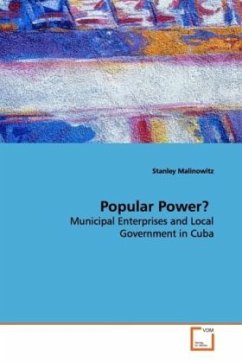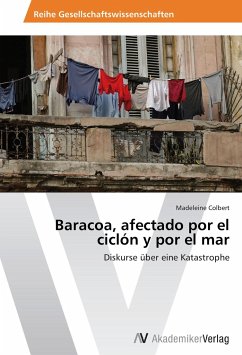Despite being the focus of decentralization and
popular participation strategies since the mid-
1970s, the consumer service sector in Cuba is
considered one of the most inefficient areas of the
economy and a source of widespread dissatisfaction,
while social services, also decentralized, are among
the most successful. This study examines the
municipal service enterprises and the local Popular
Power government institutions that run them, with
respect to problems of local self-management within
a highly centralized economy and to the forms,
scope, and limits of popular participation. The
effects of economic crisis and restructuring since
the 1990s are also considered. A case study of one
municipality is presented along with analysis of
official documents and secondary sources by Cuban
and foreign researchers. The book should be of
interest to professionals and students in economics
and other social sciences likesociology, political
science, and geography who are interested in Cuba,
socialism, decentralization, participation,
consumption and consumer services, and issues of
spaciality and social reproduction in political
economy.
popular participation strategies since the mid-
1970s, the consumer service sector in Cuba is
considered one of the most inefficient areas of the
economy and a source of widespread dissatisfaction,
while social services, also decentralized, are among
the most successful. This study examines the
municipal service enterprises and the local Popular
Power government institutions that run them, with
respect to problems of local self-management within
a highly centralized economy and to the forms,
scope, and limits of popular participation. The
effects of economic crisis and restructuring since
the 1990s are also considered. A case study of one
municipality is presented along with analysis of
official documents and secondary sources by Cuban
and foreign researchers. The book should be of
interest to professionals and students in economics
and other social sciences likesociology, political
science, and geography who are interested in Cuba,
socialism, decentralization, participation,
consumption and consumer services, and issues of
spaciality and social reproduction in political
economy.








